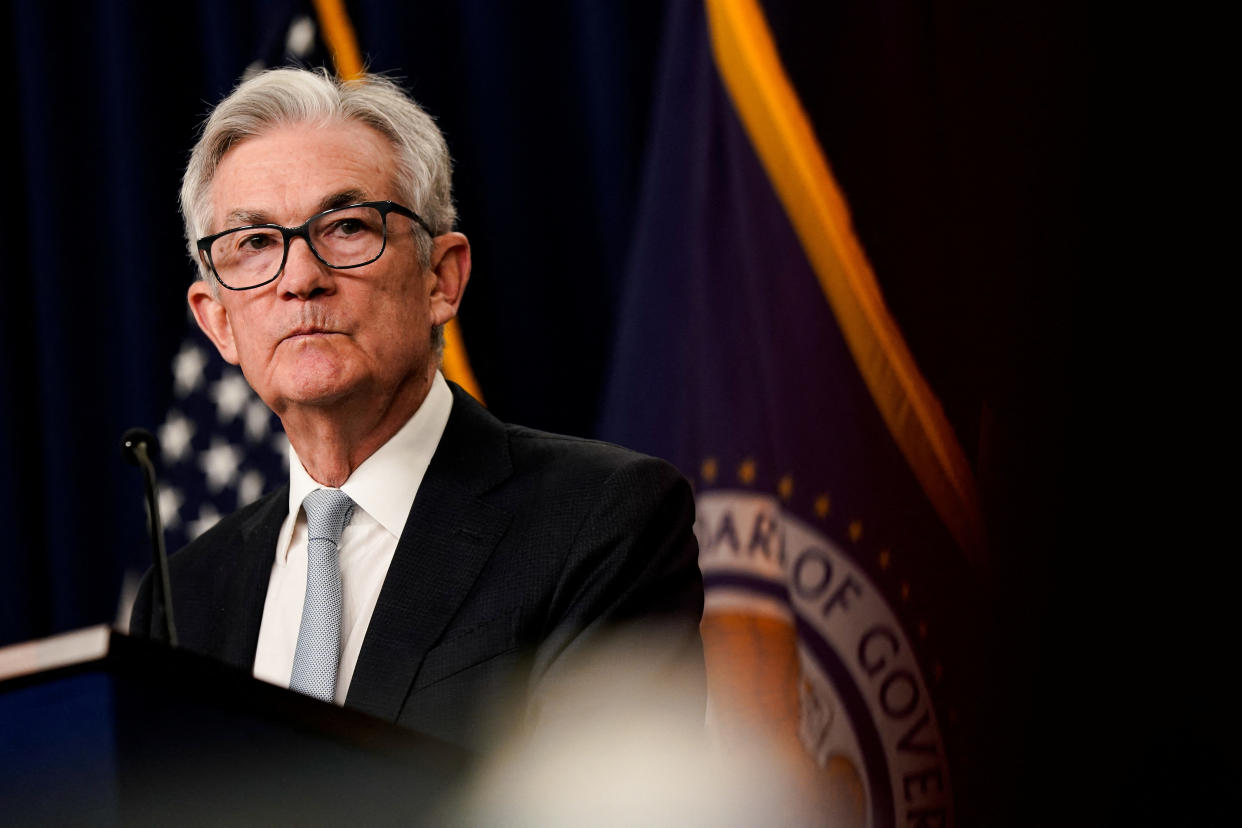The Federal Reserve raised short-term interest rates Wednesday by a half percentage point, slowing down its pace of rate hikes from this summer's torrid clip.
The rate hike brings the Fed’s benchmark policy rate, the federal funds rate, to a new range of 4.25%-4.5%, the highest level since December 2007.
Wednesday's 50 basis point rate hike comes after the Fed raised rates by 75 basis points at each of the past four policy meetings — its most aggressive stretch since the 1980s.
"Recent indicators point to modest growth in spending and production," the Fed said in its statement. "Job gains have been robust in recent months, and the unemployment rate has remained low. Inflation remains elevated, reflecting supply and demand imbalances related to the pandemic, higher food and energy prices, and broader price pressures."
The central bank also left wording in its statement saying it anticipates “ongoing increases” in interest rates, implying the Fed does not intend to pause rate hikes imminently.
"The Committee anticipates that ongoing increases in the target range will be appropriate in order to attain a stance of monetary policy that is sufficiently restrictive to return inflation to 2 percent over time," the Fed's statement said.
Following this announcement, stocks slid, with the tech-heavy Nasdaq down as much as 1%.
New economic forecasts from the Fed published Wednesday show officials now see benchmark interest rates peaking at 5.1% in 2023, an extra 50 basis points higher than the previously projected 4.6% back in September.
Officials then see rates coming down to 4.1% in 2024, slightly higher than previously projected.
These projections come after Fed Chair Jerome Powell said last meeting that rates will need to move higher than previous projections in September.
Seven officials see rates rising higher than 5% next year — with five clustering around 5.25% and two seeing rates peaking as high as 5.6% next year.
Officials don’t see core inflation coming back down close to target until 2024, with inflation rounding out this year at 4.8% before falling to 3.5% next year and 2.5% in 2024.
Officials see unemployment rising to 4.6% next year and remaining at that level through 2024. The Fed sees below-average economic growth, with the economy barely growing next year at just 0.5% before picking up slightly to 1.6% in 2024.
The Fed’s move comes as inflation has started to show signs of slowing the past two months after hitting a 40-year high this spring. The Consumer Price Index, excluding the more volatile food and energy components, rose 0.2% month-on-month in November, down from 0.3% in October and 0.6% in September and August.
The vote was unanimous.
Click here for the latest economic news and economic indicators to help you in your investing decisions
Read the latest financial and business news from Yahoo Finance
Download the Yahoo Finance app for Apple or Android
Follow Yahoo Finance on Twitter, Facebook, Instagram, Flipboard, LinkedIn, and YouTube
Source: Read Full Article


